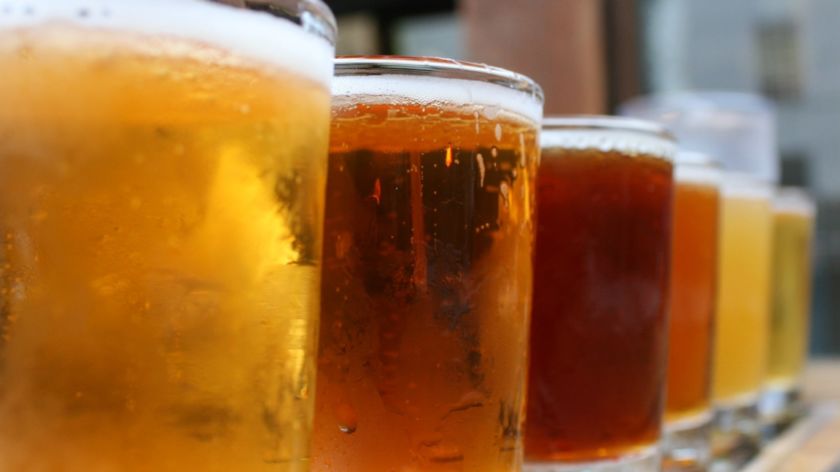‘Scientists like the same bars as other people’
Today, the first Nijmegen edition of science festival Pint of Science starts. For three days, visitors can listen to lectures on Black holes, the brain, and ancient history in the comfort of a bar. ‘We hope to reach people who don’t usually go to these things.’
As the city coordinator of Pint of Science Nijmegen, Eric Hester is overseeing the first edition of the festival in our city. ‘We have three events coming up, today, tomorrow and Wednesday’, he says. ‘It seems that a lot of people will come and listen, so we are happy with how it goes so far.’

Pint of Science is an international science communication festival, which has spread to 24 countries since 2013. Last year was the first year in the Netherlands. ‘I saw on twitter that this was happening, and I sent a message to Taichi Ochi, the director for the Netherlands’, says Hester. ‘I asked if this would also be organised in Nijmegen, and he suggested I should do it.’
Hester agreed. ‘I am from San Diego, and we had a similar event there called “two scientists walk into a bar”. I really like the concept of talking about science in places like that, because it makes science more approachable. And often, scientists like the same bars as other people.’
More beer
So this year, Hester and a team of fifteen volunteers have selected scientists, and invited them to talk about their research. The volunteers are mostly PhD students and post-docs. ‘The only real requirements from Pint of Science are that we invite local scientists, and select casual venues. And café Trianon, of course, is a very good example of that’, he says. ‘We want to create a laidback setting for people to listen to new ideas, and we hope to promote conversation about the research topics.’
Tonight, the festival will kick off with a night that’s all about black holes. Raquel Fraga-Encinas will talk about her experiences as part of the team that captured the first ever photo of a black hole. Tomorrow, post-docs Ashley Lewis and Alexandra Vlassova tell the bar go-ers all about how influences in your brain affect how you see the world, and on Wednesday, researchers Daniëlle Slootjes and Mirte Liebregts talk about crowd control in the ancient world and about dead languages.
‘For now, all talks are in English’, says Hester. ‘But eventually we would like to organise some talks in Dutch too. An important goal is to reach as many people as possible, including people who don’t usually go to these things. I think a Dutch programme would help with that.’ Hester is very optimistic about the programme. ‘We had a warm-up event in March, and about sixty people attended. They asked fantastic questions, and continued the discussion afterwards over more beer. It made me feel like the festival was doing its job.’




